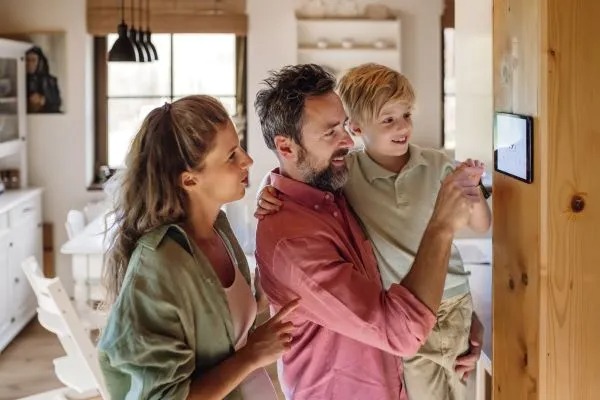No products in the cart.
Blog
Ways You Can Convince Family To Start Conserving Energy
Convincing family members to start conserving energy can be a rewarding endeavor that benefits both the environment and your household budget. Here are several effective strategies you can use to encourage energy conservation within your family:

1. Educate and Inform
- Share Information: Provide facts about the benefits of energy conservation, such as reduced utility bills, decreased environmental impact, and increased home comfort. Use resources like articles, documentaries, or infographics to illustrate your points.
- Discuss Climate Change: Highlight the connection between energy consumption and climate change. Explain how small changes can collectively make a significant impact on reducing carbon footprints.
2. Lead by Example
- Practice What You Preach: Show your commitment to energy conservation by making changes yourself, such as turning off lights when leaving a room, using energy-efficient appliances, or unplugging electronics when not in use.
- Share Your Successes: Share how much energy or money you’ve saved through specific actions. This can motivate family members to adopt similar practices.
3. Make It a Family Activity
- Plan Energy Audits: Organize a family energy audit to identify areas where energy is wasted. Use this as a fun activity where everyone can participate and suggest improvements.
- Set Goals Together: Create achievable energy conservation goals as a family, such as reducing electricity usage by a certain percentage or committing to turning off lights when leaving a room.
4. Incorporate Technology
- Use Smart Devices: Introduce smart home devices that help monitor and reduce energy usage, like smart thermostats or energy monitors. Show how these tools can simplify energy conservation efforts.
- Track Progress: Utilize apps or tools to track energy consumption over time. Visualizing progress can motivate family members to continue their efforts.
5. Create Challenges and Rewards
- Energy Conservation Challenges: Set up friendly competitions within the family to see who can save the most energy over a month. Offer small rewards for those who meet their goals, such as a favorite treat or a family outing.
- Recognize Efforts: Acknowledge and celebrate family members’ contributions to energy conservation, reinforcing positive behavior.
6. Make It Personal
- Discuss Financial Benefits: Emphasize how conserving energy can lead to lower utility bills, which can free up money for other family activities or expenses.
- Link to Values: Connect energy conservation to your family’s values, such as responsibility, sustainability, or stewardship of the planet. This can create a deeper commitment to the cause.
7. Focus on Practical Changes
- Simple Adjustments: Introduce easy, practical changes that require minimal effort, such as using LED bulbs, turning off appliances instead of leaving them on standby, or adjusting the thermostat.
- Involve Everyone: Ensure every family member understands their role, from the kids turning off lights to adults adjusting energy usage during peak hours.
8. Explore Energy-Efficient Options
- Invest in Energy-Efficient Appliances: Discuss the long-term savings associated with upgrading to energy-efficient appliances. Look for options that qualify for rebates or tax incentives to make the transition more appealing.
- Consider Renewable Energy Sources: If feasible, explore options for renewable energy, such as solar panels. Highlight the benefits of generating your own energy and the potential for long-term savings.
9. Promote Sustainable Practices
- Encourage Sustainable Transportation: Advocate for walking, biking, carpooling, or using public transport to reduce energy consumption associated with travel.
- Support Local and Sustainable Products: Encourage purchasing locally sourced products, which often require less energy for transportation and can support the local economy.
10. Be Patient and Open-Minded
- Listen to Concerns: Be open to discussing family members’ concerns or objections regarding energy conservation. Address their worries and provide reassurance that small changes can lead to significant benefits.
- Encourage Gradual Change: Understand that changing habits takes time. Encourage family members to start with small steps and gradually incorporate more energy-saving practices into their daily lives.
Conclusion
Convincing your family to conserve energy involves education, leading by example, and making the process engaging and rewarding. By discussing the benefits, setting collective goals, and implementing practical changes, you can foster a family culture that prioritizes energy conservation, ultimately benefiting both the environment and your household.
